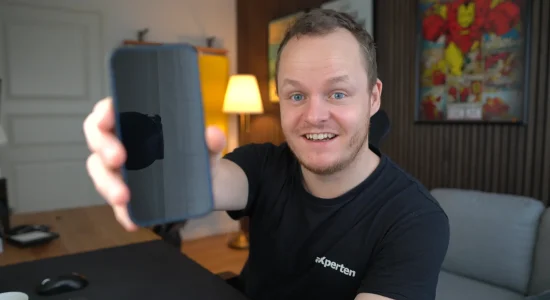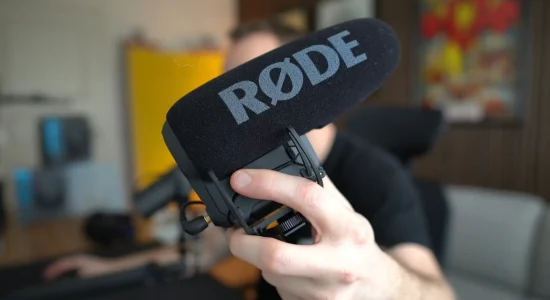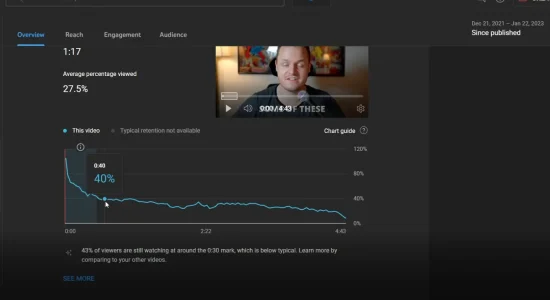With the podcasting industry projected to keep growing and hit $60.5 billion by 2027, it’s no wonder people are looking for ways to get in on the action.
And while starting a podcast with a co-host can help share the load, finding someone who shares your vision and is willing to commit the time and energy is not always possible.
So, is it possible to start a podcast on your own?
Starting a podcast with yourself is possible, but it will require more work. You’ll need to be comfortable with being the sole voice on your show and be prepared to wear all the hats (producer, editor, and marketer). A solo podcast is a great way to get your voice out and build an audience.
While solo podcasting has several advantages, getting started can be daunting. To help you out, I will discuss everything you need to know about solo podcasting, including the pros and cons and tips on how to get started.
I have both run a solo-podcast and a duo-podcast that was quite big in my field – in Denmark. It was called (translated) organic growth.

The Pros and Cons of Solo Podcasting
Solo podcasts are gaining popularity for their ability to provide a more intimate look into the life and thoughts of their host. And while there are many advantages to going it alone, there are also a few drawbacks that you should be aware of before taking the plunge.
3 Pros of Solo Podcasting
If you love total control and running things on your own, then solo podcasting is definitely for you. It’s also an excellent way to connect with your audience and come off as relatable.
Here are some benefits of solo podcasting:
#1 Complete Control Over Your Show
As the sole host of your podcast, you’ll have complete control over every aspect of your show. From the topics you cover to the length of your episodes, you’ll be able to call all the shots and tailor the show exactly to your liking.
Since there is no co-host to check in with or bounce ideas off of, you’ll also have the freedom to flip the script whenever you want.
If you feel like covering a different topic or taking your show in a new direction, you can do so without having to consult anyone else.
#2 More Intimate Connection With Your Audience
Unlike a podcast with a co-host, you will be talking directly to your audience as if they were right in front of you. Channeling your voice right to their ears creates a much more intimate connection that can help you build a loyal following.
People will also get to know you better as they hear you share your thoughts and experiences.
If you’re open and honest about your life, listeners will feel like they are getting to know the “real you” and will be more likely to stick around for future episodes.
This is an excellent way to build trust and rapport with your audience.
#3 Easier To Record and Edit
Since you won’t have to worry about coordinating schedules with a co-host, recording and editing your podcast will be a breeze. You can record your episodes whenever and wherever you want, and you won’t have to worry about anyone else’s audio quality or background noise.
This also means you can edit your episodes as much or as little as you want. With a co-host, interruptions and talking over each other can increase the edit time.
But when you’re flying solo, you can edit out pauses, stutters, or filler words to create a tight and polished episode.
3 Cons of Solo Podcasting
While the flexibility, freedom, and total control that come with solo podcasting are hard to beat, there are a few drawbacks that you should be aware of before getting started. These include:
#1 More Workload
Since you’ll be handling everything yourself, from creating content to recording to editing to marketing, there will be much more work on your plate. This can be a bit overwhelming and pretty stressful, especially if you’re trying to balance it with a full-time job or other commitments.
If you’re not used to working on audio projects, the learning curve can also be a bit steep. It might take some time to get comfortable with recording and editing software, and you’ll need to be willing to do extra work to create a high-quality show.
Besides, with a solo podcast, you won’t have anyone step in for you if you need a break.
#2 Engaging Monologues Are Hard To Pull Off
While creating an engaging and interesting monologue is certainly possible, it’s not always easy. If you’re not used to talking for long periods without interaction, keeping your energy up and maintaining your audience’s attention can be tough.
This is why it’s important to have a clear focus for your episodes and plan out what you want to say in advance. Otherwise, you might be rambling on without getting to the point.
#3 Staying Motivated Can Be Challenging
Like any creative project such as YouTube Gaming or Twitch streaming, there will be times when you lose motivation or get bogged down with the process. Since you’re the only one working on your podcast, staying on track and keeping your episodes consistent can be hard.
With no one holding you accountable, letting your podcast fall by the wayside when things get tough is easy.
This is why it’s important to have a clear vision for your show and a strong reason for doing it in the first place.
5 Tips for Starting a Successful Solo Podcast
If you’re thinking about starting a solo podcast, there are a few things you can do to set yourself up for success and earn some passive income. These include:
- Find your niche: The key to a successful solo podcasting career is to talk about something you’re passionate about. When genuinely interested in your topic, it will be easier to come up with interesting things to say and keep your episodes engaging.
- Do your research: Before you start recording, take some time to learn about the ins and outs of podcasting. This will help you avoid technical hiccups and ensure you’re putting out the best possible product.
- Plan your episodes: Having a clear focus for each episode will make it easier to stay on track and avoid rambling. Planning ahead will also help you stay motivated and keep your episodes consistent.
- Get involved in the community: There are tons of other solo podcasters out there, and getting involved in the community can be a great way to find support and advice. There are also plenty of online resources, like forums and Facebook groups, that can be helpful.
- Start promoting: Don’t wait until you have a few episodes under your belt to start promoting your show. Getting the word out there from the beginning will help you build an audience and get feedback on your episodes.
Final Thoughts
If you’re thinking about starting a podcast, going solo is an option to consider. While there are some challenges that come with it, there are also plenty of benefits.
Just be sure to find your niche, do your research, plan ahead, and get involved in the community. With a little effort, you can create a successful and engaging show that your listeners will love.






